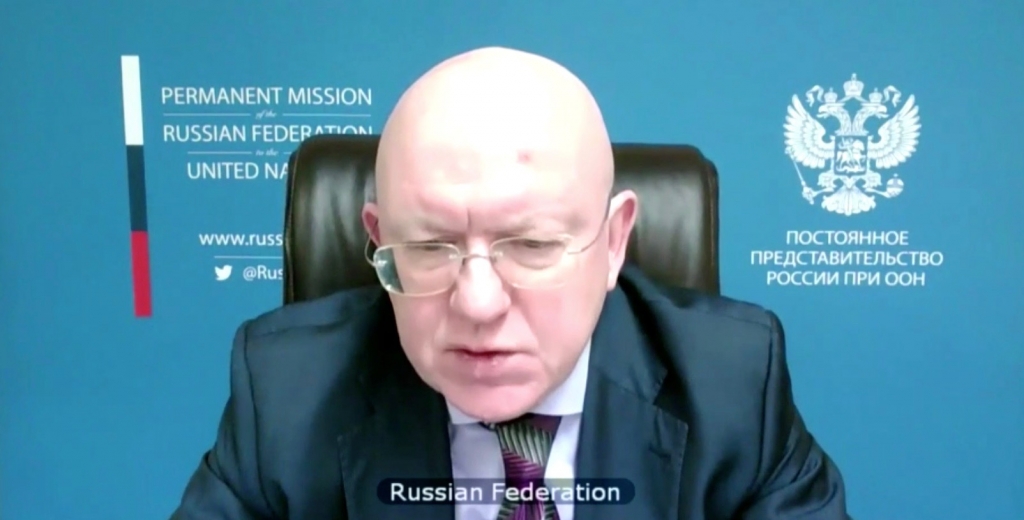Statement by Permanent Representative Vassily Nebenzia at an open VTC of UNSC members on the situation in Yemen
Mme. President,
We thank Special Envoy Martin Griffiths and Under-Secretary-General Mark Lowcock for the reviews of the political and humanitarian situations in Yemen. We also closely followed the briefing by Ms. Shawky.
This VTC convenes against the backdrop of a dangerous escalation in Yemen, where an almost 6-year long deadly conflict has put two thirds of the population in a dire need of urgent humanitarian assistance. We have to state with regret that the logic of armed confrontation still prevails. We are particularly concerned over the situation around Marib, where deadly clashes resumed in early February. Fighting is also reported in other Yemeni governorates. We call on the sides to stop fighting and solve the problem by political and diplomatic means. We intend to further support relevant efforts taken by Special Envoy for Yemen Martin Griffiths. We emphasize that all sides to the conflict must uphold the international humanitarian law. Any combat operations that can ruin the civil infrastructure or claim lives of civilians are unacceptable.
To support the implementation of the Riyadh Agreement of 5 November 2019, which was designed to normalize the situation in the south of Yemen, on 18 December 2020 a new coalition government was formed where representatives of the southern regions for the first time received a considerable part of ministerial posts.
We hope that implementation of the mentioned agreements will enhance public security and allow to focus on urgent socio-economic and humanitarian problems in this part of Yemen. We also advocate for practical implementation of the Riyadh provisions addressing the launch of negotiations of a consolidated delegation of official Yemeni authorities and Southern Transition Council with the leadership of Houthi movement “Ansar Allah” on issues of future political structure of Yemen.
Some encouraging signals have recently arrived from Washington. I mean the US decision to reconsider having "Ansar Allah” Houthi movement on the list of foreign terrorist organizations, and the proclaimed commitment of the new US Administration to join the work aimed at bringing the conflict to an end promptly. Should this constructive approach be backed up by corresponding practical steps, the chances of restoring the long-awaited peace and stability in Yemen will positively grow.
Mme. President,
Humanitarian assistance to Yemen should be a priority track of our joint work. To counter hunger that is spreading throughout the country, and diseases including COVID-19, Yemen needs broad support of the international community. We took note of the International Pledging Event on Yemen of 1 March 2021, which resulted in donors taking an obligation to cover about 50 % of the budget of Yemen’s humanitarian response plan. The UN leadership believes this result to be insufficient to reverse the negative humanitarian trend in Yemen. We call upon the donors, i.a. from the region, to enhance the required financial support for the UN programs providing basic assistance, including those ensuring food security of the population, access to clean water and medical services. We believe that the key factor that should ease the humanitarian catastrophe in Yemen is non-discriminatory distribution of humanitarian assistance among the entire population of the country
We also believe that mutually acceptable and non-politicized solutions can be found to solve the problem of SAFIR tanker.
In conclusion, we remind that the launch of confidence-and security-building process in the Persian Gulf, and eventually in the entire Middle East, would contribute to resolving crises, including the Yemeni conflict. In this regard, we once again call on our colleagues to pay attention to the fact that the entire sub-region needs comprehensive stabilization, based, among other things, on UNSC resolution 598 and the Russian collective security concept.
Thank you.
